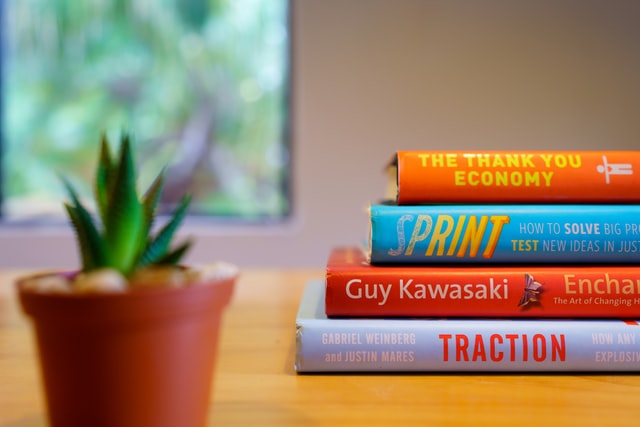THE Google has a series of global relationship programs with entities in the startup ecosystem. Until recently, there were several brands for these programs - which were unified into one: Google For Startups.
ACE has been an exclusive Google partner in Brazil since 2018, and was one of the first 10 members of the Google Launchpad (now also Google for Startups), program dedicated to accelerators and VC funds (venture capital).
The then 26 global partners met in London for the Launchpad Summit, the last event with this brand - as of now, there are 75+ partners around the world (and ACE remains the only one in BR: D).

We learned a lot about the ecosystems and the operation of the most diverse countries, and I think it is worth sharing a little of what I saw most interesting:
The Brazilian ecosystem is evolved
We always compare the Brazilian startup ecosystem with more evolved places, like Silicon Valley, or Israel, or even China. It is a comparison that leaves us “in the shoes” and gives rise to the good old thought of the “mongrel syndrome”.
However, from a larger perspective, Brazil does have a well-developed ecosystem of startups, especially in some regions.
We have entities in the country to support beginning entrepreneurs (Sebrae, Startup Weekend's, meetups, municipal and state initiatives like SP Stars and StartupSC), there are incubators and accelerators (Farm, Darwin, Wow, etc.), there are groups of angels (Anjos do Brasil , GV Angels) there are venture capital funds (ACE, Canary, Monashees, Kaszek, others), there are traditional and non-traditional schools for talent training (universities, Gama Academy, Le Wagon). Anyway.
And more than agents, there is time for experience to make sure that there is a certain maturity in the execution of these. Talking to player leaders from other countries, I can clearly see how some of them are a few years ago.
From Puerto Rico and Colombia, which are also asserting themselves as economies, but also Sweden and Portugal, which still do not have many successful cases with startups and have not made the “wheel of founders and talents” turn enough to produce great critical mass, and Serbia and Indonesia, which are at the very beginning of the supporting ecosystem.
Tech first
While in Brazil we still have a lack of developers and many entrepreneurs with a well-developed business side, there are countries like Serbia, India and Estonia where the great mass of professionals has a technical (Engineering, Mathematics, Science) or technological origin - that is, an abundance of CTOs and devs.
These countries need to encourage tech talent to be more entrepreneurial, or open their borders so that companies can use their labor. THE Startup Wise Guys (Estonia and the Balkans) has international selection as the criterion for choosing, and has already joined founders from Brazil and Portugal who had applied with similar businesses in a single business.
Don't take it for granted
Although a developing country, we already have many benefits in Brazil that we need to take into account, both in terms of infrastructure and ecosystem development.
In India, some businesses are slow to move forward due to low internet penetration in some underserved urban areas.
In Nigeria, for example, Venture Garden needs to pay for tickets, accommodation and even visas for entrepreneurs to work with them. In Ghana, MEST does similar work: they are the only players that help the North Africa region.
Meanwhile, Banj is one of the only hubs for helping entrepreneurs in Haiti, but it went out of business for a couple of months after one of the popular protests / uprisings destroyed all of the accelerator's equipment.

Government interference
Some local governments have done interesting work to foster entrepreneurship.
Estonia created a global visa for those who work with technology, while Portugal has made a very strong strategic marketing effort to place itself as a pole of entrepreneurship, bringing from the Websummit (one of the biggest global events) to encouraging “at the base”, but it is still very incipient.
South Africa has put in place one of the measures that I think is most powerful: the government has created a law that requires corporations to have at least 30% of their purchases made with suppliers that are startups. Companies are still adapting, but I believe that there is no better incentive for startups (especially B2B) than this one.
What we teach and learn
During the Launchpad Summit, in addition to learning about different cultures and ecosystems, we delved deeply into three topics:
Here, I will put aside my modesty and say with certainty: ACE is globally one of the most evolved players in the three themes (origination, operation and model). We managed to learn a lot from other entities as well, but notoriously we have a world-class game in our hands.
Operations: basically, how to work with startups. Monitoring, metrics, cohorts, mentors, content, partners, frameworks, community, fundraising, connections with corporations and much more tactics to make your invested or accelerated perform better.
After 7 years between acceleration, venture capital investment, working with squads and connecting between startups and corporations, ACE created a series of processes, frameworks and models that have become a reference for other Launchpad partners - in addition, of course, to the digitization and democratization of all of these for entrepreneurs around the world through Growthaholics for Startups.
Business Models: how a company in our market makes money: we saw everything from sponsored models (Digitaraya, Indonesia), consulting, media (Startit, Serbia), equity-investing (P18, Puerto Rico), dealflow for proprietary VC funds (Indico Capital, Portugal, and Wellstreet Ventures, Sweden), partnership with universities (DMZ, Canada), companies and even governments.
Each player has a different model from the other, and the feeling I had was that ACE itself had already tested a series of these models until it found the current one (two business units, a hands-on innovation consultancy and a Venture Capital company that invests in the Seed Stage).
Origination: the eternal search for the best founders was the last theme, ranging from how and which doors to knock on, how to form startups from established markets and businesses, to the selection, filtering and due diligence process, to ensure that you have at hand a startup with good team, with validated problem and product, repeatable and scalable model in a giant market.
We opened part of our Selection Algorithm, which takes into account 40+ variables to spit out a recommendation (between Investing, Tracking or Not Investing). We commented on the rigorous ACE Investment Flow process, which takes into account interviews with founders, customers and specialists and a diligent desk research to compose a detailed analysis of the market, product, team and several other points of each startup to be sure of each contribution or connection. After more than 20 thousand companies analyzed, we dominated the process.

Anyway ...
We also learned a lot from global players and the Google team itself (which is a super partner, by the way) - some of these learnings and partnerships made during the Launchpad Summit will have a direct impact in the short term for ACE, and consequently for the ecosystem.
In short, it was an aggrandizing Summit. I am excited for the next steps, and already looking forward to the 2021 edition - with 75+ partners.



